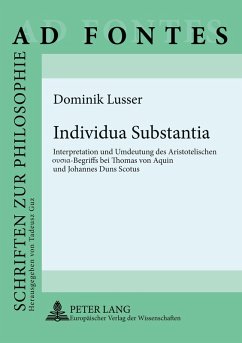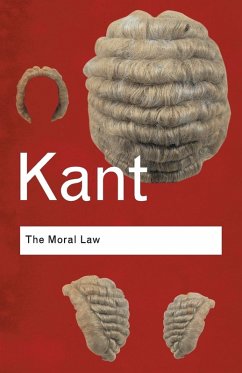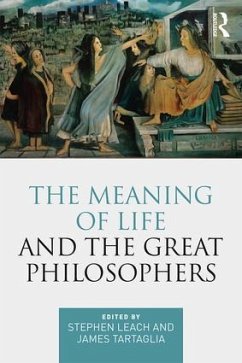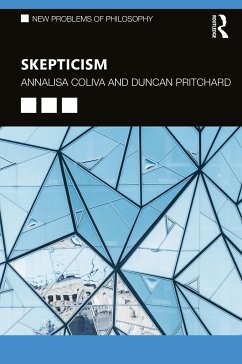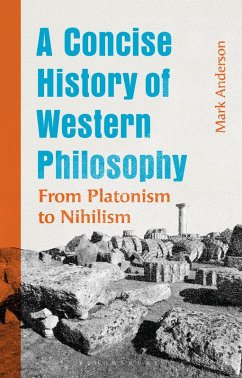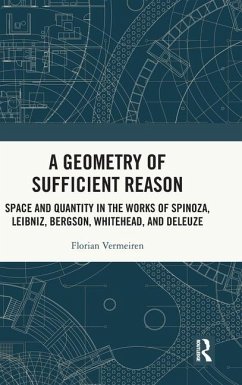
Michael Della Rocca (USA Yale University)
Broschiertes Buch
Spinoza
Versandkostenfrei!
Versandfertig in 6-10 Tagen

PAYBACK Punkte
11 °P sammeln!





A clear introduction to a daunting philosopher, Spinoza is the ideal starting point for anyone coming to his thought for the first time and essential reading for any student or scholar of the seventeenth century.
Michael Della Rocca is Professor and Chair of Philosophy at Yale University. He is the author of Representation and the Mind Body Problem in Spinoza, and our numerous articles in early modern philosophy and contemporary metaphysics.
Produktdetails
- The Routledge Philosophers
- Verlag: Routledge / Taylor & Francis
- Artikelnr. des Verlages: RU83302
- Seitenzahl: 360
- Erscheinungstermin: 25. Juni 2008
- Englisch
- Abmessung: 216mm x 140mm x 20mm
- Gewicht: 446g
- ISBN-13: 9780415283304
- ISBN-10: 0415283302
- Artikelnr.: 22784019
Herstellerkennzeichnung
Libri GmbH
Europaallee 1
36244 Bad Hersfeld
gpsr@libri.de
'In his Spinoza, Michael Della Rocca has performed a service for those seeking a thorough, accessible and engaging overview of Spinoza's life and philosophy. ...unquestionably the best general introduction to Spinoza's overall philosophy since Henry Allison's Benedict de Spinoza: An Introduction, published over twenty years ago.' - Times Literary Supplement
'Spinoza offers highly original, often brilliant scholarship and will be an indispensable resource for undergraduates.' - Notre Dame Philosophical Reviews
'An absolutely fantastic book. Della Rocca has succeeded in making Spinoza's notoriously difficult thought accessible to a general audience without sacrificing
'Spinoza offers highly original, often brilliant scholarship and will be an indispensable resource for undergraduates.' - Notre Dame Philosophical Reviews
'An absolutely fantastic book. Della Rocca has succeeded in making Spinoza's notoriously difficult thought accessible to a general audience without sacrificing
Mehr anzeigen
any of the conceptual complexity and rigors that makes Spinoza such a good philosopher.' - Martin Lin, University of Toronto, Canada
'This is an exciting, interesting, and highly-readable book on Spinoza. Della Rocca offers a bold thesis: that Spinoza's philosophy results from persistently applying the principle of sufficient reason to absolutely everything - so, in short, there can be no dumb luck, no brute facts. Della Rocca successfully uses this thesis to illuminate the basics of Spinoza's philosophy, and to extend several scholarly discussions in new and interesting directions. His book will instruct both beginning and advanced students of Spinoza.' - Charles Hueneman, Utah State University
'This is an exciting, interesting, and highly-readable book on Spinoza. Della Rocca offers a bold thesis: that Spinoza's philosophy results from persistently applying the principle of sufficient reason to absolutely everything - so, in short, there can be no dumb luck, no brute facts. Della Rocca successfully uses this thesis to illuminate the basics of Spinoza's philosophy, and to extend several scholarly discussions in new and interesting directions. His book will instruct both beginning and advanced students of Spinoza.' - Charles Hueneman, Utah State University
Schließen
Für dieses Produkt wurde noch keine Bewertung abgegeben. Wir würden uns sehr freuen, wenn du die erste Bewertung schreibst!
Eine Bewertung schreiben
Eine Bewertung schreiben
Andere Kunden interessierten sich für







